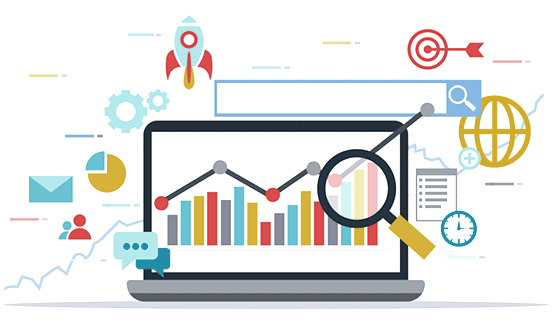
BY: Craftsolutions
Why Should I Give A Damn About Those P&Ls?
I keep receiving financial reports and all sorts of numbers from my accountant every month like she’s obsessed. And I don’t even know what to do with them. I know that I should read them and that I am supposed to take some kind of decision based on them. But I hate them from the bottom of my heart! I simply cannot understand how they relate to me or my business.
Does This Sound Familiar?
If this rings a bell, if this is how you feel each and every month, then know that I feel you! I’ve seen this so many times over the past 15+ years. I concluded this is one of the biggest problems of every-day business.
And yet there is sooo much valuable information in those numbers, that many of us can’t even imagine. I believe it’s high time to start using them properly and take our businesses to the heights we always wanted them to go. I think Warren Buffet nailed this idea when he said:
“In the business world, the rearview mirror is always clearer than the windshield.”
– Warren Buffett, CEO of Berkshire Hathaway
In other words, there are myriads of extremely valuable lessons in our company’s the past financial information. If we carefully analyze our financial reports, the effects of our decisions become very clear and we can use this super valuable information to make much better decisions for the future.
Don’t Abdicate Financial Management
All of the financial problems companies run into come from inadequate financial management, or from abdicating this to technicians. I have seen this so many times over the years. Business owners or general managers ignore or abdicate financial management because they dislike or are intimidated by finances.
“The word accounting comes from the word accountability. If you are going to be rich, you need to be accountable for your money.”
– Robert Kiyosaki, “Rich Dad, Poor Dad”
You simply cannot expect your accountant to perform financial management for you. Although they are very skilled technicians, their job is to gather and record financial information, not to manage your company’s finances. To properly manage your finances you need to do it yourself or hire a CFO to do it with you.
But one thing is certain: If you’re not clear about what results you want or how your finances relate to your company’s success, your business will be in a lot of trouble!
“If you don’t have regular and accurate financial statements, you’re driving your business 100 miles an hour down a one-way street the wrong way, at night, in the fog, without lights.”
– Jim Blasingame, President, Small Business Network, Inc.
Numbers Need To Learn How To Speak Business Language
But don’t be discouraged. The good news is you don’t need to enroll in the next accounting class and learn how to debit and how to credit. You can leave it to the accountants. But then how are you supposed to understand those pesky figures?
The problem is that raw numbers can’t speak business language. It’s a fact! But don’t get me wrong. It’s not their fault. In the end, numbers are numbers, they cannot teach themselves a foreign language. However, as a business owner or manager, you should receive reports that speak to you in business and not finance language. Financial reports should not be produced only because it is mandatory or because this is common practice. Instead, they should assist business owners and managers in making the best business decisions possible.
You deserve to be excited when you receive your financial reports. Just imagine how it would feel to open reports which burst with valuable business insights that put you on the bleeding edge of your market and industry. This is how it should really feel to use financials!
So How Do You Teach Your Numbers How To Speak Business Language?
I can guarantee it will not help you to simply install yet another Business Intelligence (BI) or some other type of system. As in many other areas of life and business, more is not necessarily better. Plus, you want to tailor your numbers to your specific situation and needs.
This is no easy task. So how should you go about it?
Step 1
The first step is to analyze what financial information is the most important to you and your business. Knowing this helps you redesign your reports to suit your specific situation.
This is not always easy to do, so you should consider hiring a consultant who can do this for you. It will definitely save you a lot of time and a lot of headaches.
Step 2
Implement a system that can automate your reports. This is such an important part, because:
- It saves you from adding significant overheads just to produce your reports;
- You get the information exactly when you need, not when the opportunity has passed;
- It allows you to dig deep into your reports and reveal the root causes for performance and not just look at fixed Excel spreadsheets;
- It can visually display your data withing dashboards and charts, which is extremely helpful;
- You can access the information from any device.
Below are some examples of how your financial information can be displayed in such a way, that it speaks to you directly.

Visual Financial Reports
Conclusion
Your company’s financial numbers are a source of extremely valuable information, not pain. If you don’t feel this yet, then you should do something to change this right now. You can’t afford to keep doing things as you did before, because you are placing your business under great risk. The good news is that in today’s digital age, there are powerful systems available which can help you automate your financial management and transform data into powerful insights right at your fingertips.